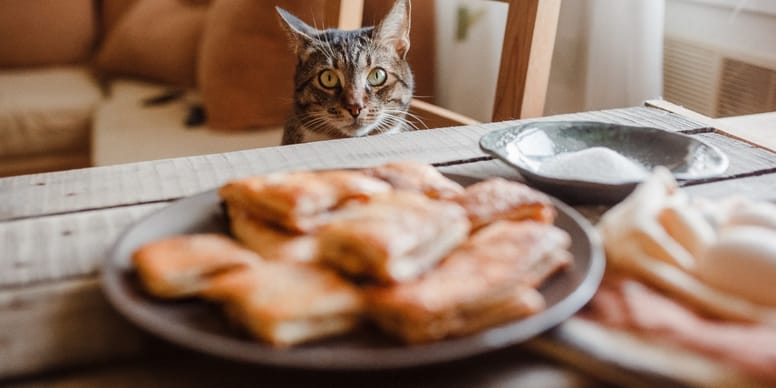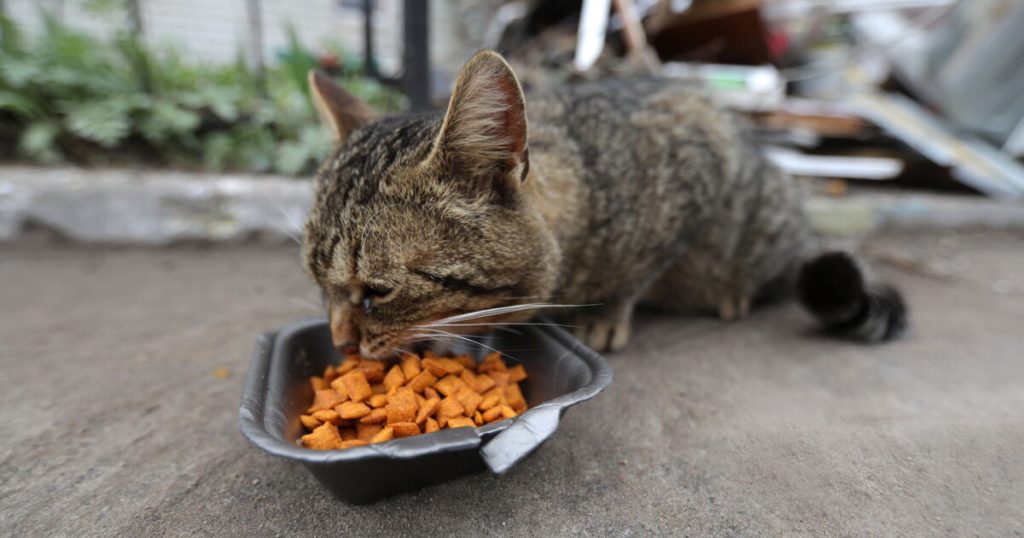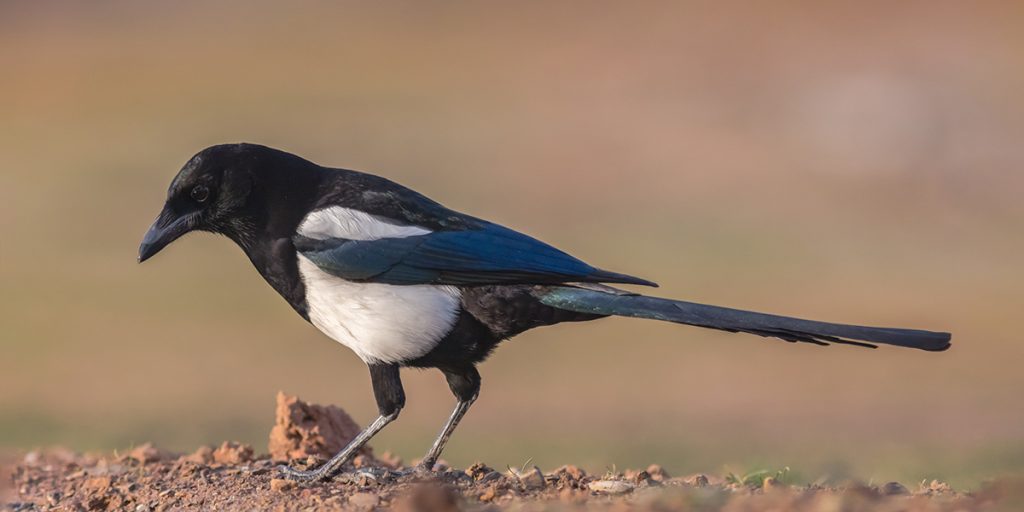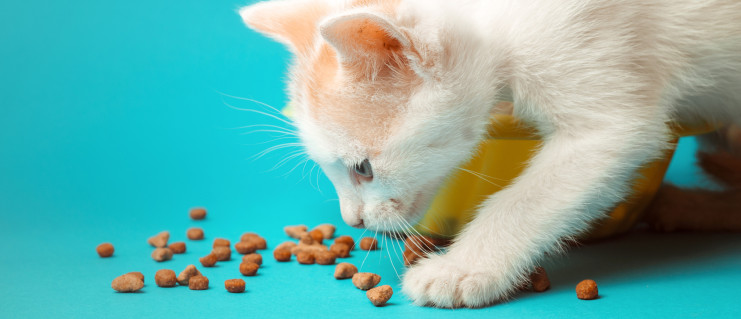
Why does my cat always seem hungry?
Cats, as carnivores, have specific nutritional needs that may be different from other pets. Their natural diet is high in protein and fat, meaning they often require smaller amounts of food but with a high energy content.
Also see:
Each cat's metabolism is also unique, which can influence the amount of food they need. Some cats have faster metabolisms and burn more calories, while others tend to store more fat.
Additionally, factors such as age, physical activity level, and even whether or not you are spayed or neutered can also play a role in your cat's appetite. For example, neutered cats often have a slower metabolism and tend to gain weight more easily.
My cat steals: is this normal behavior?
Food theft in cats may seem strange to owners, but it often has instinctive origins. Cats are natural hunters and have developed a survival instinct for finding food. Even if our domestic cats are well-fed, this instinct can sometimes take over, especially if they are bored or feeling stressed.
It is also important to note that food theft in cats may be a response to an unsatisfied food desire. If your cat does not receive a balanced and sufficient diet, it may seek to supplement its diet by stealing food from elsewhere in the house.
Pattounes in your mailbox?
Let's go !
Should you scold your cat if you see it stealing?
When you catch your cat stealing food, it can be tempting to reprimand the behavior. However, it is important to understand that scolding or punishing your cat after the fact can be ineffective and even counterproductive.
Cats don't understand punishment the same way dogs do. Scolding or punishing your cat after it steals food can lead to confusion, anxiety, and even make the unwanted behavior worse. Your cat may associate your presence with a negative experience, which can affect your relationship and its trust in you.
Instead, it's best to take preventative measures to discourage food theft behavior. Keep food out of reach by using airtight containers or placing food in areas where your cat cannot access. You may also consider limiting access to areas where food is stored by closing doors.
The kitten that flies: a weaning problem
Kittens can often exhibit food stealing behavior, especially if they have not been weaned properly. Weaning is a critical stage in kittens' development, during which they learn to eat solid foods and gradually move away from mother's milk.
When kittens are weaned too early or inadequately, they can develop a strong bond with food and this can lead to compulsive eating behaviors, including food theft.
If you have a kitten who steals food, it is crucial to consult a veterinarian or feline behaviorist for advice on how to correct this behavior. By working with qualified professionals, you can help your kitten learn healthy eating habits and develop appropriate behavior as she grows.
The risks of being overweight
Being overweight in cats can lead to a range of health problems that can be serious. Just like in humans, excess weight can increase the risk of developing health problems such as diabetes, heart disease and joint problems. Additionally, overweight cats also have a reduced life expectancy compared to those kept at a healthy weight.
One of the main challenges associated with being overweight in cats is difficulty losing weight once it has taken hold. Cats may be reluctant to exercise or change their eating habits, making weight management even more complicated.
Fortunately, it is possible to monitor your cat's weight in order to keep it healthy. And it's not that complicated if you're a little careful. Here’s what you can easily set up:
- Balanced diet : Make sure your cat receives a quality diet, specially formulated to meet its nutritional needs. Choose foods rich in protein and essential nutrients, and avoid foods high in carbohydrates and empty calories.
- Environmental enrichment : Offer your cat interactive toys and stimulating activities to encourage him to stay active. Toys that dispense food slowly or require some thought to use can help entertain your cat and keep him occupied between meals. Cats also often enjoy toys made from catnip, as well as scratching posts.




